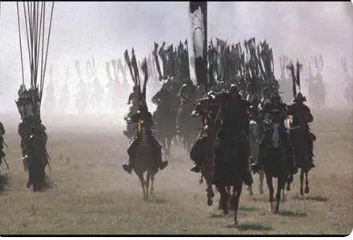In recent history, the 1900 Boxer Rebellion and the Eight-Nation Alliance invasion of China was a severe challenge faced by the country. This event not only caused tremendous damage to China, but also profoundly affected its historical process. How did China respond to the invasion of foreign enemies at that time? What lessons can we learn from this history today? This article will review that magnificent history and explore the Chinese nation's response.

I. Background of the Eight-Nation Alliance Invasion
The Eight-Nation Alliance referred to the combined army composed of Britain, the United States, Germany, France, Russia, Japan, Italy, and the Austro-Hungarian Empire in 1900 to suppress the Boxer Rebellion and rescue foreign embassy personnel trapped in Beijing. At that time, China was in a turbulent period at the turn of the late Qing Dynasty and early Republic of China, with domestic political corruption, economic backwardness, and intensified social conflicts, making it unable to resist foreign aggression.
II. China's Response and Resistance
Facing the invasion of the Eight-Nation Alliance, the Chinese people demonstrated tenacious resistance. Both official organized resistance and spontaneous resistance by the people reflected the unyielding national spirit of the Chinese nation. However, due to corruption and incompetence within the Qing government and the vast military strength gap, China suffered heavy defeats and humiliation in this war.
III. War Results and Impacts
The Eight-Nation Alliance invasion ended with the signing of the "Treaty of Xinchou," which forced China to accept a series of harsh conditions including reparations, territorial concessions, and diplomatic restrictions. This war exacerbated China's national crisis while also stimulating the national awakening and self-improvement consciousness of the Chinese people, laying the groundwork for the later Xinhai Revolution and modernization process.
IV. Lessons and Inspirations from History
The Eight-Nation Alliance invasion is a painful experience in Chinese history that the nation prefers not to recall, but it left profound lessons. First, national prosperity is the foundation for safeguarding national dignity and sovereignty. Second, national unity and social stability are essential guarantees for national development. Finally, openness, inclusiveness, and learning from advanced experiences of other countries are necessary paths to achieving one's own development.
Conclusion:
The Eight-Nation Alliance invasion was a painful experience in the history of the Chinese nation but also an important moment that stimulated national awakening and the spirit of self-improvement. Looking back on this history, we should learn from its lessons, cherish peace, and strive for development to ensure the prosperity and great rejuvenation of the country and the nation.
Disclaimer: The above content is sourced from the internet and the copyright belongs to the original author. If there is any infringement of your original copyright, please inform us and we will delete the relevant content as soon as possible.
































